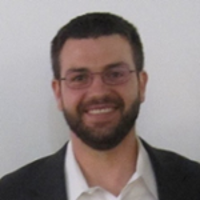Vice President of Regulatory and Clinical Research Programs at Gravity Diagnostics; Former Postdoc, Department of Pharmacology; 2012-2016

Interview By Bridgette Peake, PhD
Postdoctoral Fellow, Dept. of Medicine, Pulmonary Division
Dr. James Canner joined Emory University as a post-doctoral research fellow in 2012. He worked in the Department of Pharmacology under the mentorship of Dr. Grace Pavlath. His research investigated the mechanism by which skeletal muscle stem cells promote repair during injury. He was also competitively selected for admission into the Atlanta BEST trainee program. BEST is an NIH program that allows scientists to explore careers beyond academia. As a BEST trainee he had the opportunity to intern at Emory’s Office of Technology Transfer (OTT). His experience at OTT provided a networking platform for potential career opportunities.
Prior to Emory, Dr. Canner received his BS in Biochemistry and MS in Biotechnology from Boston University. He earned his PhD in Cellular, Molecular and Developmental Biology from Tufts University School of Medicine. Dr. Canner now works as vice president of regulatory and clinical research programs at Gravity Diagnostics. The Kentucky-based diagnostics and pharmacogenetics company helps provide genetic tests using cutting edge instruments for personalized medical treatment.
In addition to your post-doctoral research, what other interests did you have while at Emory?
I had a strong passion for mentoring and educating. While in graduate school I was a small group advisor for biochemistry students and I really enjoyed that experience. So as a postdoc I decided to become an undergraduate biology laboratory instructor. Being an instructor gave me the opportunity to prepare course material, design experiments and provide mentorship to students.
Is there anything about your career journey that you feel is unique?
I didn’t realize that I was transitioning into the clinical side of science. For some reason I was always under the impression that clinical research was for physicians. I didn’t know that clinical post-doctoral fellowships existed. Resources exist that will train PhDs for clinical careers and provide funding.
What advice do you have for postdocs who have the desire to transfer to industry?
I was recruited for my previous job at a PhD alumni lunch. Networking is essential. More importantly, you have to be able to communicate your interests and long-term goals to others effectively. If you feel overqualified, emphasize your soft skills or transferrable skills. Don’t be afraid to pursue continuing education for certification or experience that would help you become more qualified. People are going to look to you for answers because individuals who obtain advanced degrees are problem solvers.
What do you enjoy most about your industry and what is a typical day like at the office for you?
I enjoy learning about innovative diagnostics and applying those findings to human disease. I truly believe that I am participating in real translatable science. My days at work are variable. I’m not at the bench anymore, but I am still intimately involved with experimental design. Other days I may participate in clinical testing and technical development or even administrative tasks. I also participate in method development, establish SOPs, root cause analyses and propose testing. My job requires that I exercise soft skills and people skills daily.
This interview was published in April 2018.

